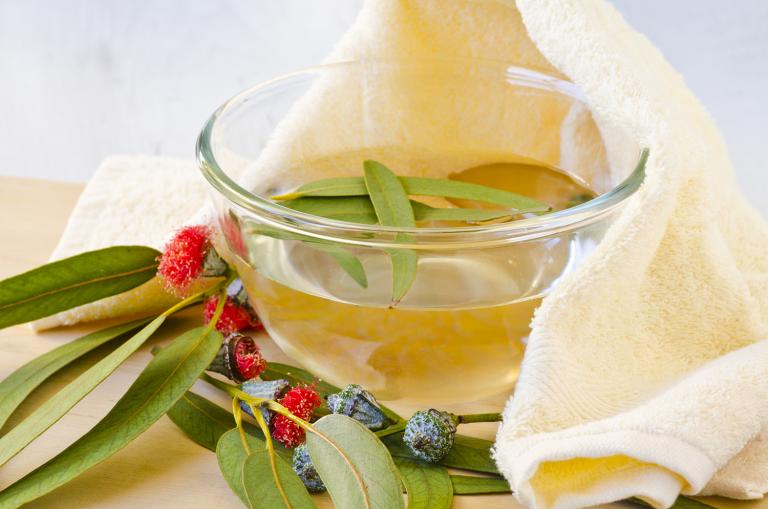Most of the time, sinuses are out of sight, out of mind. But when they’re inflamed, they can cause swelling, congestion, headache, facial pain, cough, toothache, and more. If you’re prone to sinus problems or are fighting a cold or allergies that could result in sinus blockage, there are simple steps you can take to keep things flowing.
What is Sinusitis?
Sinusitis is an overgrowth of bacteria, infection, and an inflammatory response, in the sinus cavities.
What Causes Sinusitis?
The paranasal sinuses—four pairs of connected cavities in the bones around the nose—produce mucus that keeps the inside of the nose moisturized and helps keep out pollutants, micro-organisms, and dust. When sinus passages are blocked, though, they can’t drain, which leads to the condition.
How Long Does It Take to Go Away?
Most cases of acute sinusitis last less than a month, and clear up on their own.
Should I See A Doctor For Sinus Problems?
If you have a chronic or recurring case of sinusitis, or if your symptoms are severe and continue for more than a week, see a healthcare practitioner.
How to Prevent Sinusitis
The key to avoiding sinusitis is to keep nasal passages from clogging. Try some of these preventive measures.
-
Neti Pot
The Harvard Women’s Health Watch calls nasal irrigation “one of the simplest, cheapest, and most effective ways to prevent and treat sinus problems.” Irrigate your sinuses once or twice a day with saline nasal spray—if using a neti pot mix up a solution of two cups of water, a half teaspoon of baking soda, and a half teaspoon of non-iodized salt.
Use Neti Pots Safely
Organisms that are sometimes found in small amounts in tap water are safe for drinking because they are killed in stomach acid. But inhaled, bacteria, protozoa, and/or amoebas may stay alive in nasal passages and can cause serious infections and, in rare cases, even death.
If you are cleansing or moisturizing your nasal passages with a neti pot, spray bottle, or other device, it’s critical to follow guidelines from the Centers for Disease Control. Follow any manufacturer’s instructions, wash, dry, and air the device between uses, and use only safe water.
Water Safe for Neti Pots
- Distilled or sterile water that you’ve bought in a store.
- Water that’s been boiled for three to five minutes and then cooled until it’s lukewarm.
- Water that’s been processed with a filter designed to trap infectious organisms.
-
Household Hygiene
When possible, keep the thermostat turned down. Heat will dry out your nostrils, meaning mucus won’t clear as easily. If you can, put on a sweater rather than turning up the heat. Make your house an irritant-free zone by banishing cigarette smoke, harsh cleaning products, hairspray, and anything else that produces strong fumes. Ventilate your house well to clear out stale air.
-
Personal Hygiene
Drink plenty of water—at least a quart a day. Inhale steam in the shower to keep your nostrils moist. Humidify your bedroom, making sure the humidifier is regularly cleaned. Sleep with an extra pillow to elevate your head and promote sinus drainage. Be gentle with your nose: Blow one nostril at a time. Use decongestants sparingly.
-
Diet
Sinus problems are caused by inflammation, so eating an anti-inflammatory diet can keep them at bay. Avoid processed sugar, gluten, foods high in saturated fat, refined carbohydrates, and excess omega-6 fatty acids from processed foods. Instead, focus on foods that contain antioxidants or omega 3s. That includes oily fish, tart cherries, avocados, green vegetables, beans, citrus, berries, and other fruit, green tea, and spices including turmeric, ginger, basil, and cayenne pepper.
-
Oregano Oil
Oregano oil has been shown to rival antibiotics for treating or preventing various infections, without harmful side effects. It potentially can fight off allergies, sinus pain, arthritis, colds and flu, earaches, and fatigue. It’s also been shown to prevent overgrowth of yeast that can lead to thrush, yeast infections, and other digestive problems.
Natural Treatments for Sinusitis
-
Steam and/or Warm Compress
You can alleviate discomfort with nasal irrigation, by inhaling steam, and by applying a warm compress to your face.
-
Self-Massage
The UCLA Center for East-West Medicine recommends acupressure as a way to improve symptoms stemming from seasonal allergies and sinusitis.
- With fingers or thumbs, apply gentle pressure for two to three minutes on the B2 acupressure points—you’ll find them in the indentation of your upper eye sockets, where the bridge of the nose meets the ridge of the eyebrows.
- To open up the sinuses in your cheeks, put pressure on the LI20 and St3 points. They are located beside your nostrils, just below your cheekbones.
The Sinus Microbiome
The future of sinus care may include probiotics. A 2017 study of topical probiotic interventions recommends research to determine whether probiotics applied directly to the sinuses via nasal spray and mouthwash could serve as a treatment for chronic rhinosinusitis. The idea would be to create a healthy balance in the nasal cavity microbiome.
The study author wrote: “If successful, probiotics could provide a highly valued, inexpensive, and safe treatment of airway disease, and is likely to have the added benefit of reducing antibiotic prescriptions and thus contribute to tackling the rising incidence of antibiotic resistance.”

